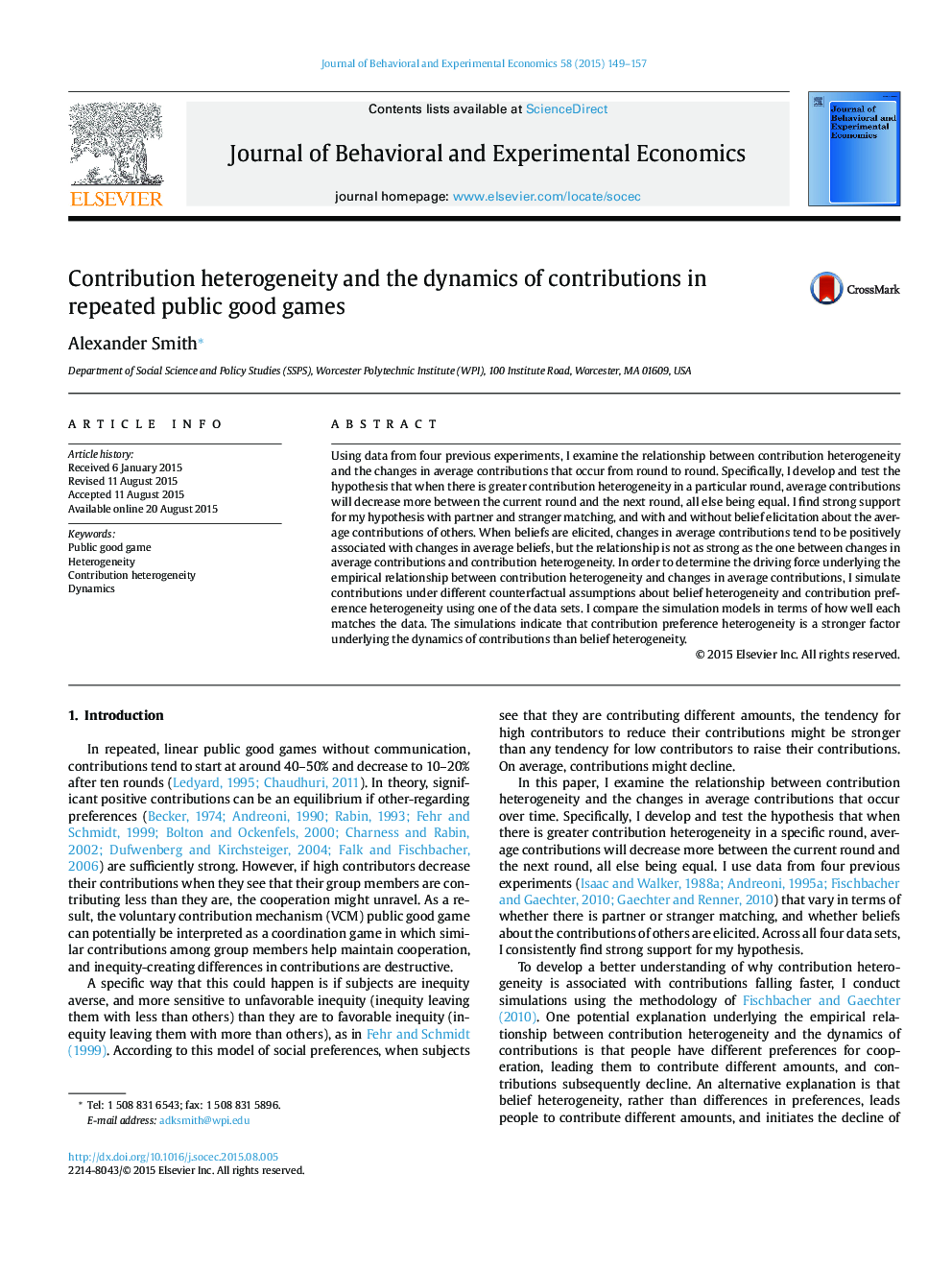| Article ID | Journal | Published Year | Pages | File Type |
|---|---|---|---|---|
| 881929 | Journal of Behavioral and Experimental Economics | 2015 | 9 Pages |
•New evidence on decreasing contributions in repeated public good games.•Average contributions fall faster when contribution heterogeneity is high.•Finding robust to matching mechanism and whether beliefs are elicited.•Preference heterogeneity a stronger underlying factor than belief heterogeneity.
Using data from four previous experiments, I examine the relationship between contribution heterogeneity and the changes in average contributions that occur from round to round. Specifically, I develop and test the hypothesis that when there is greater contribution heterogeneity in a particular round, average contributions will decrease more between the current round and the next round, all else being equal. I find strong support for my hypothesis with partner and stranger matching, and with and without belief elicitation about the average contributions of others. When beliefs are elicited, changes in average contributions tend to be positively associated with changes in average beliefs, but the relationship is not as strong as the one between changes in average contributions and contribution heterogeneity. In order to determine the driving force underlying the empirical relationship between contribution heterogeneity and changes in average contributions, I simulate contributions under different counterfactual assumptions about belief heterogeneity and contribution preference heterogeneity using one of the data sets. I compare the simulation models in terms of how well each matches the data. The simulations indicate that contribution preference heterogeneity is a stronger factor underlying the dynamics of contributions than belief heterogeneity.
